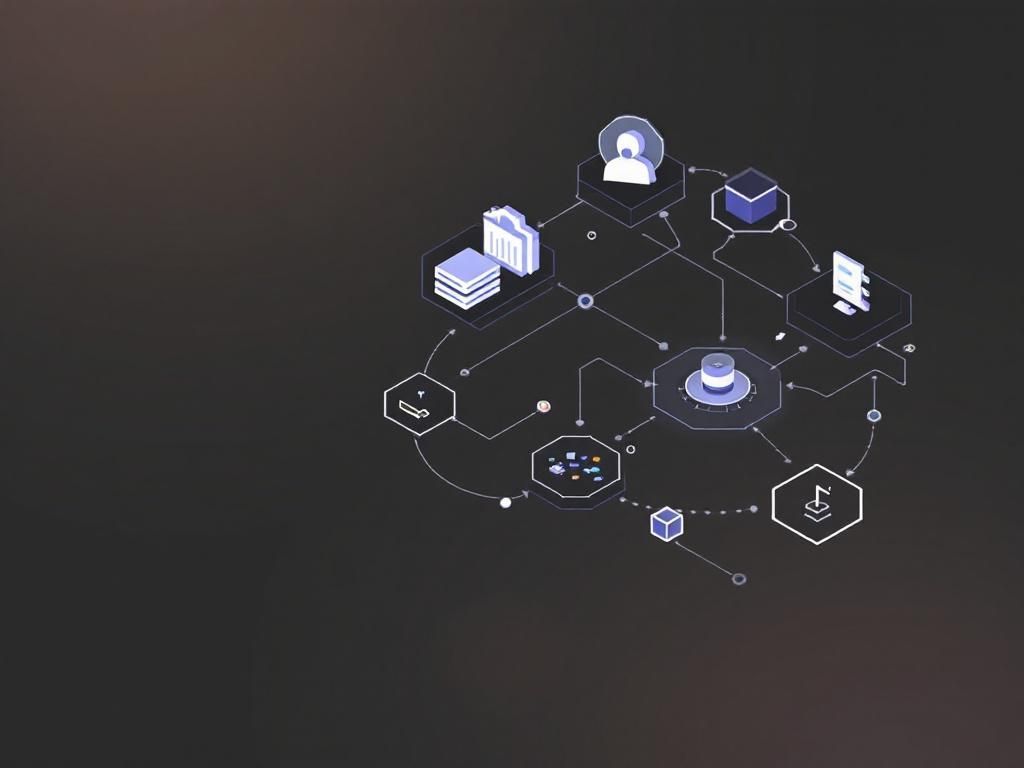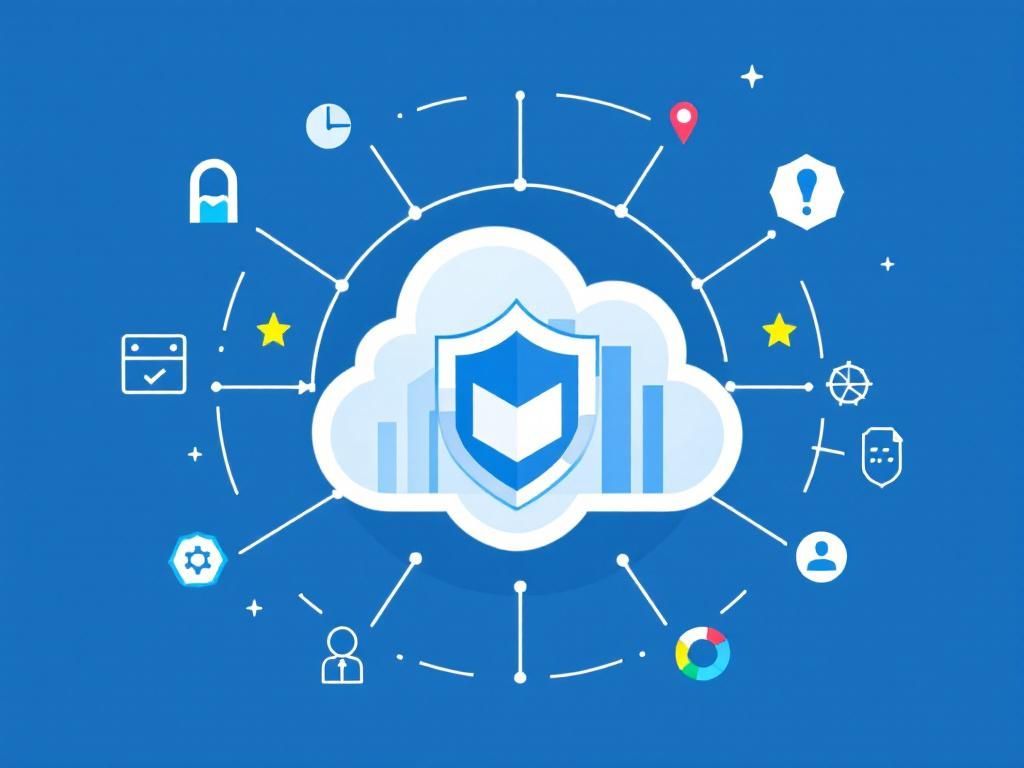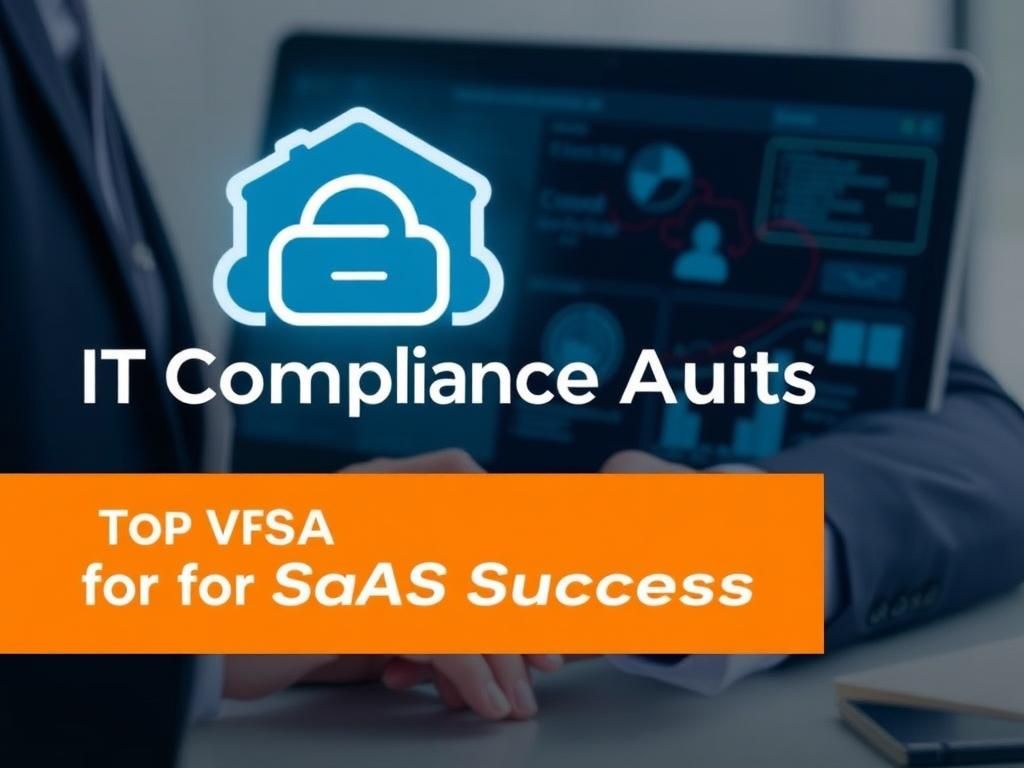Mastering IT Compliance for SaaS Firms in 2025
Explore essential strategies for SaaS firms to master IT compliance in 2025 and stay ahead of regulatory challenges.

As the tech landscape evolves, IT compliance remains a critical concern for Software as a Service (SaaS) companies, especially as we move further into 2025. The need for robust compliance frameworks has never been more evident, given the rapid pace of technological advancement and the increasing scrutiny from regulatory bodies. Navigating the complex world of IT compliance can be daunting, yet it is essential for SaaS firms to safeguard their operations, protect customer data, and build trust in their services.
Table of Contents
Understanding IT Compliance
IT compliance refers to the adherence to various regulations, standards, and policies that govern how data is managed and protected within an organization. For SaaS firms, compliance is pivotal as they often handle sensitive customer information, financial data, and proprietary business information.
Key compliance standards relevant to SaaS companies include:
- General Data Protection Regulation (GDPR): A regulation in EU law on data protection and privacy.
- Health Insurance Portability and Accountability Act (HIPAA): A U.S. law that provides data privacy and security provisions for safeguarding medical information.
- Payment Card Industry Data Security Standard (PCI DSS): A set of security standards designed to ensure that all companies accepting, processing, storing or transmitting credit card information maintain a secure environment.
- Federal Risk and Authorization Management Program (FedRAMP): A U.S. government-wide program that standardizes security assessment and authorization for cloud products and services.
The Importance of Compliance in SaaS
Compliance is essential not only for legal and regulatory reasons but also for maintaining customer trust and enhancing brand reputation. Here are some reasons why compliance is crucial for SaaS firms:
- Risk Management: Compliance frameworks help identify potential risks and mitigate them effectively.
- Customer Trust: Demonstrating adherence to compliance requirements fosters trust and confidence among users.
- Market Advantage: Companies that prioritize compliance can differentiate themselves in a competitive market.
- Financial Savings: Avoiding regulatory fines and penalties can lead to significant cost savings over time.
Key Compliance Challenges for SaaS Companies
While the importance of compliance is clear, SaaS firms face several challenges in achieving and maintaining compliance:
- Complexity of Regulations: Understanding and adhering to multiple regulations can be overwhelming.
- Rapid Technological Change: Keeping up with the evolving technological landscape can complicate compliance efforts.
- Data Management: Effectively managing and protecting large volumes of data is a significant challenge.
- Resource Constraints: Smaller SaaS firms may lack the necessary resources to implement comprehensive compliance strategies.
Strategies for Ensuring IT Compliance
To successfully navigate the compliance landscape, SaaS firms can implement various strategies:
1. Develop a Compliance Framework
Creating a compliance framework tailored to the specific needs of the organization is essential. This framework should outline:
- The relevant regulations
- Compliance processes
- Roles and responsibilities of team members
2. Conduct Regular Risk Assessments
Regular risk assessments help identify vulnerabilities and areas that require attention. This proactive approach allows for timely remediation of potential compliance issues.
3. Leverage Technology Solutions
Utilizing compliance management software can streamline the compliance process, making it easier to track and manage regulatory requirements. Some popular tools include:
| Tool | Features |
|---|---|
| OneTrust | Privacy management, compliance tracking, risk assessment |
| LogicGate | Customizable compliance workflows, risk management |
| Netwrix | Data security audit, compliance reporting |
4. Provide Employee Training
Regular training sessions ensure that all employees understand compliance requirements and the importance of data protection. Training topics may include:
- Data privacy regulations
- Security best practices
- Incident response procedures
5. Stay Updated on Regulatory Changes
Compliance is not a one-time effort; it requires ongoing vigilance. Staying informed about changes in regulations and industry standards is essential for maintaining compliance.
Case Studies: Successful Compliance in SaaS
Examining successful case studies can provide valuable insights for SaaS companies looking to enhance their compliance efforts:
Company A: GDPR Compliance
Company A implemented a comprehensive GDPR compliance strategy that included appointing a Data Protection Officer (DPO), conducting regular audits, and enhancing data encryption measures. As a result, they not only achieved compliance but also increased customer trust and satisfaction.
Company B: HIPAA Compliance
Company B, a healthcare SaaS provider, faced challenges in meeting HIPAA requirements. By investing in employee training and updating their data handling processes, they successfully passed a rigorous compliance audit and maintained their reputation in the healthcare industry.
Future Outlook: The Evolving Compliance Landscape
As we look towards the future, the landscape of IT compliance will continue to evolve. Emerging trends to watch include:
- Increased Focus on Data Privacy: With growing concerns over data privacy, regulations will likely become more stringent.
- Artificial Intelligence in Compliance: AI tools can help automate compliance processes and enhance monitoring capabilities.
- Cross-Border Compliance: As SaaS companies expand globally, navigating international regulations will become more critical.
In conclusion, mastering IT compliance is a multifaceted endeavor that SaaS firms must prioritize as they navigate the complexities of 2025 and beyond. By developing robust compliance strategies, leveraging technology, and staying informed, companies can protect their operations, foster customer trust, and achieve long-term success.
FAQ
What is IT compliance for SaaS firms?
IT compliance for SaaS firms refers to the adherence to industry regulations, standards, and legal requirements related to data security, privacy, and operational processes that govern software as a service.
Why is IT compliance important for SaaS companies in 2025?
In 2025, IT compliance is crucial for SaaS companies to ensure data protection, build customer trust, avoid legal penalties, and stay competitive in a rapidly evolving regulatory landscape.
What are the key regulations affecting SaaS compliance in 2025?
Key regulations affecting SaaS compliance in 2025 include GDPR, CCPA, HIPAA, and various industry-specific standards that dictate how data should be managed and protected.
How can SaaS firms prepare for IT compliance audits?
SaaS firms can prepare for IT compliance audits by implementing robust data management practices, maintaining detailed documentation, conducting regular internal assessments, and staying updated on regulatory changes.
What are common challenges in achieving IT compliance for SaaS?
Common challenges in achieving IT compliance for SaaS include keeping up with evolving regulations, ensuring employee training, managing third-party vendor compliance, and integrating security measures into software development.
How can technology help SaaS companies maintain compliance?
Technology can help SaaS companies maintain compliance by automating compliance processes, providing real-time monitoring and reporting, and facilitating secure data management and encryption.




